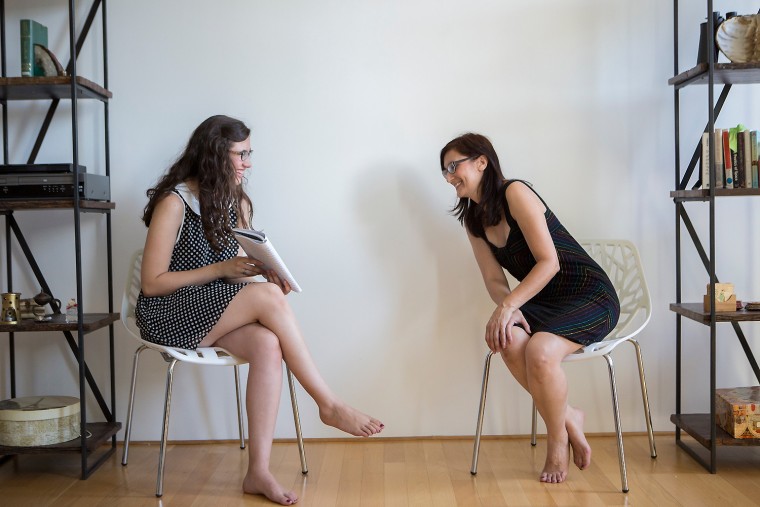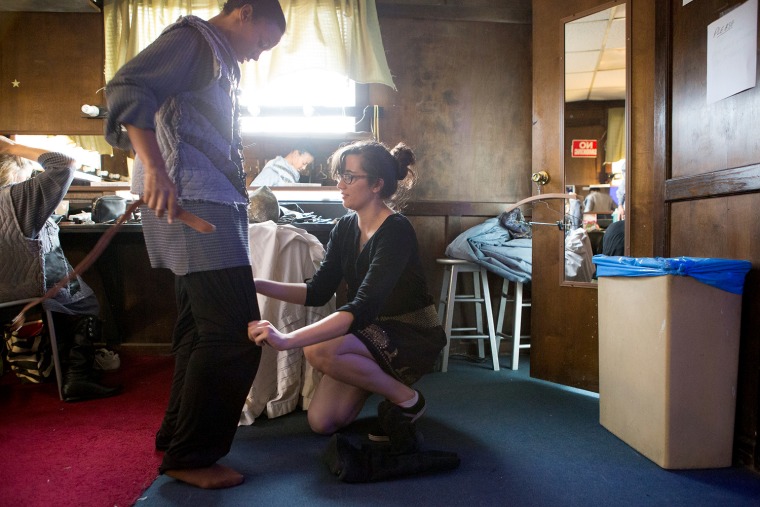When Mikey Franklin, 24, was job-searching this past January, he noticed that almost nobody was looking for full-time employees. What employers wanted instead: unpaid interns. Three years earlier, Franklin had a fulfilling unpaid gig at a left-leaning political action committee, but things were different now. He was married and couldn’t afford to work for free.
Frustrated, Franklin decided to co-found the Fair Pay Campaign, a grassroots effort that officially launches on Labor Day to “end unpaid internships in America.” The message is simple, he said: “No one should have to work for free to get ahead.”
Franklin is one of a growing number of disgruntled workers who have begun to challenge the fairness — and legality — of the unpaid internship, a fact of life for young Americans hoping to pad their resumes and gain experience. In June, a Federal District Court judge in Manhattan ruled that Fox Searchlight Pictures violated federal and New York minimum wage laws by failing to pay two interns working on the film “Black Swan.”
When the suit was filed two years ago, it was the first of its kind. Now interns have waged more than 20 lawsuits against companies such as the Hearst Corporation, Conde Nast, Atlantic Records, and Gawker Media. [Former interns filed suit in July against NBCUniversal, earlier this year; the company began paying interns.]
These lawsuits cite the Fair Labor Standards Act, which requires that an employer using unpaid interns provide training and gain “no immediate advantage” from the trainee. This criteria would appear to make most internships illegal; interns often perform menial, not meaningful, tasks. (Perhaps employers realize this when they look at resumes for employee hires; unpaid interns experienced no advantage in the job market, and no higher starting salary, compared to students who had not completed internships, according to a survey of 20,000 students conducted by the National Association of Colleges and Employers.)
Ross Perlin, author of “Intern Nation,” thinks this wave of suing and organizing signals the “beginning of the end” of unpaid gigs, at least in the private sector. “Unpaid internships may soon reach a tipping point where they’ll lose their luster,” he said. “Awareness is just spreading and spreading.”
That awareness extends to employers. Juno Turner, an attorney at Outten and Golden LLP, the firm that worked on the Fox Searchlight lawsuit, says these cases have “provoked some introspection” among larger corporations. “Many are taking a hard look at their programs and seeing what changes need to be made in order to comply with the law,” she said.
Still, there’s a long way to go before unpaid internships vanish. About half are in the public sector, where Turner says “the law is less clear,” since nonprofits often can code their interns as “volunteers.” Some colleges require internships, with most prohibiting interns from getting paid while they’re receiving course credits.
And not everyone is convinced that unpaid internships are such a bad idea. Some proponents defend them as valuable opportunities, particularly those that truly provide training. Others point out that the threat of lawsuits could prompt some businesses, especially smaller ones, to eliminate apprentice programs altogether.
But critics of unpaid gigs argue that few Americans can afford to work for free these days. Despite the common assumption that unpaid interns are privileged college kids, a 2012 study showed that they are mostly middle- or working-class, and often hold down second jobs to pay the bills. They’re also 77 percent more likely to be female.
Still, many interns accept working for free as a rite of passage, and even welcome the opportunity.

Unpaid intern Chloe Diaz, 20, works six days a week at the Los Angeles Women's Shakespeare Company. Her mother, who became a maid after immigrating from Colombia, has trouble helping her with her $15 weekly bus fare. “She wishes I was getting paid,” said Diaz, who wants to pursue an acting career. “But I think I will reap what I sow … putting in more time now will help me later.”
To many interns trying to make it in their fields, challenging the status quo through financial demands or lawsuits doesn’t seem worth it. “It’s more important just to do the internship and get a job,” said Dan Verderosa, 28, of Long Island, N.Y., who had three nonprofit internships during graduate school.
Some interns worry they’ll be blacklisted from their chosen careers if they sue or campaign for pay. Despite that fear, Johanna Workman, 43, filed a complaint with the state Labor Commissioner’s office against University of California-San Francisco, where she had worked as an unpaid intern in clinical psychology. Workman, who was struggling to pay rent, was willing to accept the risk of backlash.
“I just saw something that I found to be illegal and inequitable and felt like it needed to be fixed,” she said.
So does Franklin, who wants his Fair Pay Campaign to help eradicate unpaid internships, starting with the White House, which every year hires 300 unpaid interns to work 45 hours per week. He wants to put President Barack Obama on the spot, even if the White House technically complies with labor law. “It’s the people's house…opportunities to work and learn there should be open to everyone,” Franklin says.
Fair Pay also has plans to hire organizers in major cities and build global coalitions with organized labor and European interns. The group has already helped two New York University sophomores circulate a petition calling for the university to remove unpaid internship postings from its jobs website. It’s garnered more than 1,000 signatures online.
As more interns demand compensation, the rest of the world is starting to notice. When interns at “The Nation” recently wrote an impassioned letter to the editor, criticizing the magazine’s $150/week stipend for its full-time internship, their employer listened: Starting this fall, interns at “The Nation” will be paid minimum wage.
That could be the start of a trend, according to Turner. “Some companies may decide to pay interns because they’re afraid of the law,” she said. “And some may do it because the public demands it."
